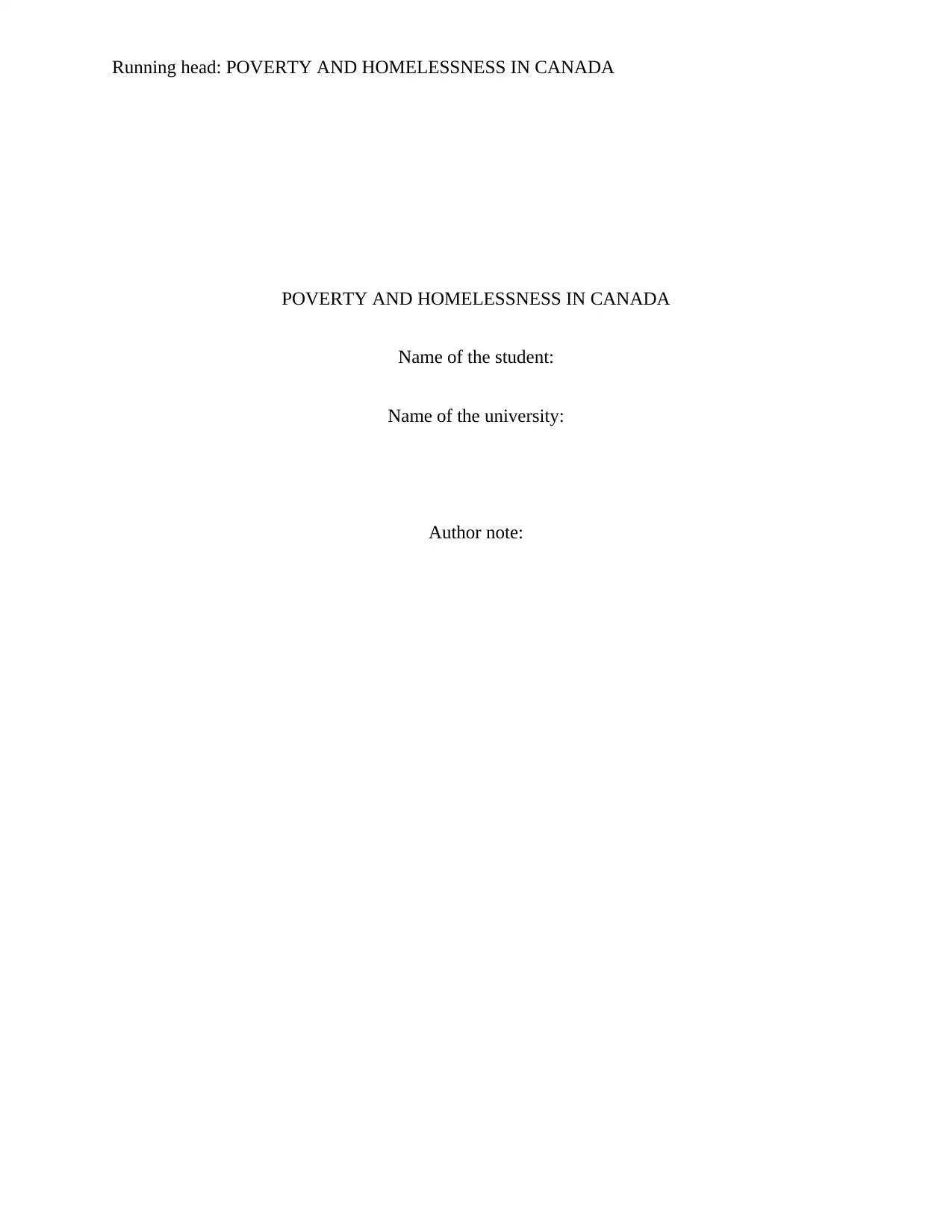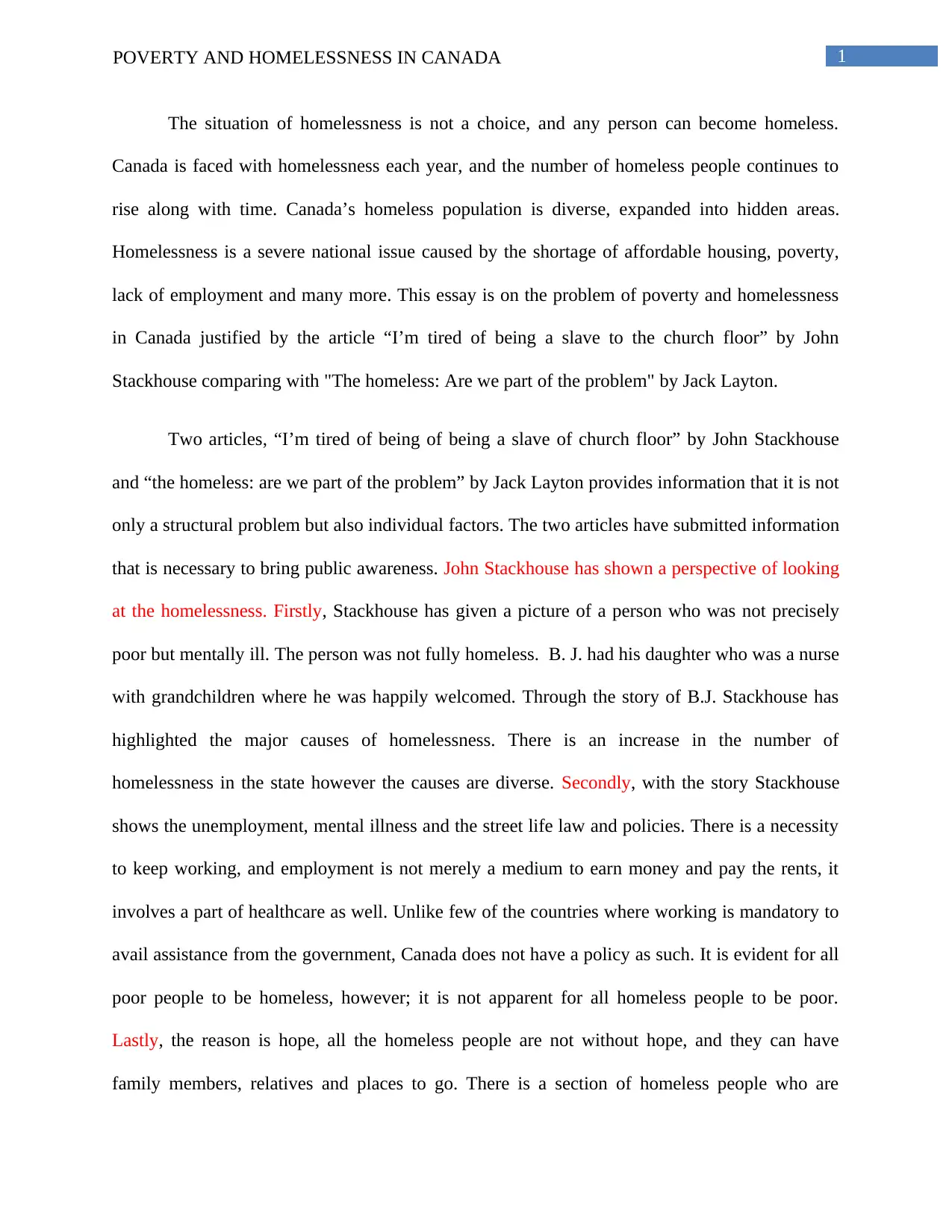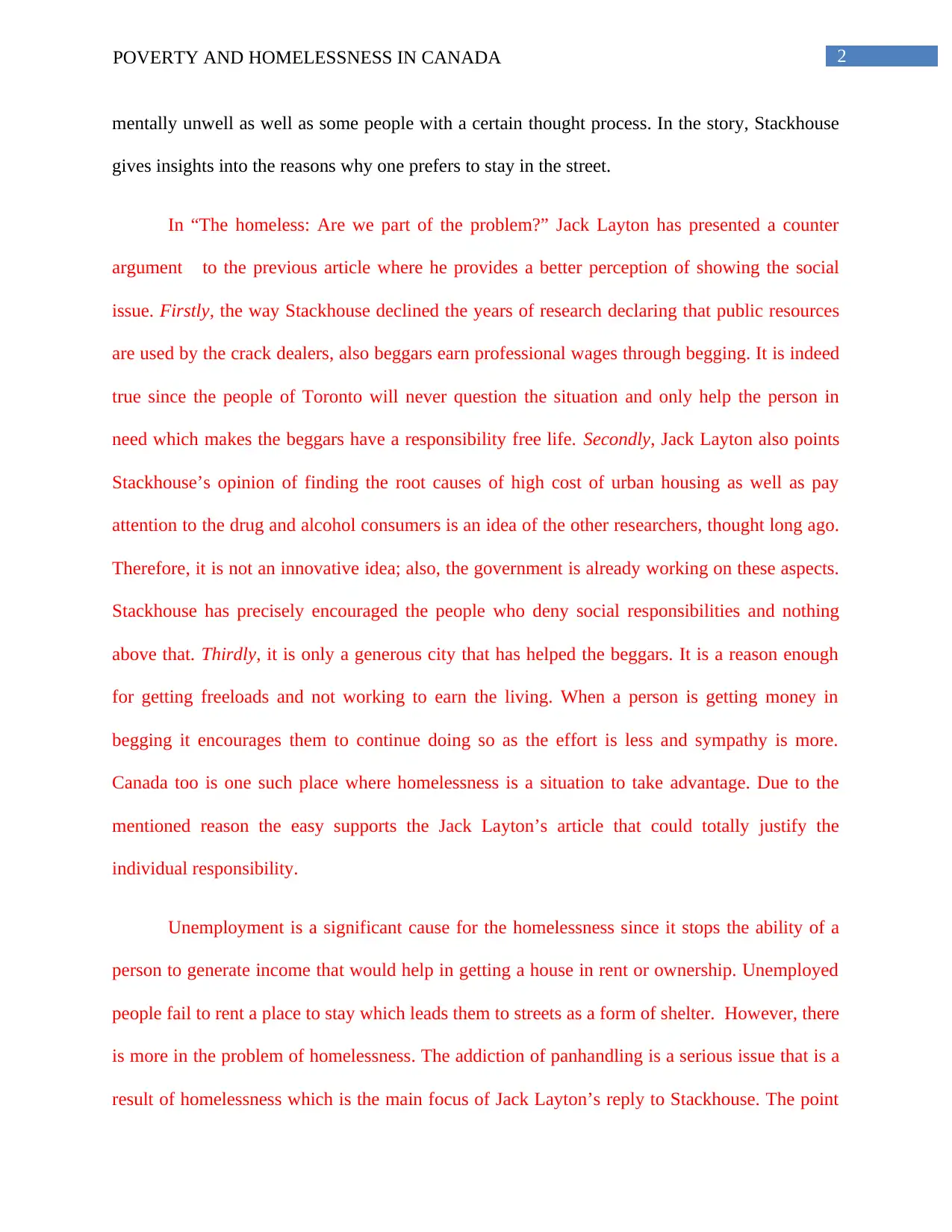Poverty and Homelessness in Canada: A Comparative Essay Analysis
VerifiedAdded on 2023/06/08
|4
|877
|181
Essay
AI Summary
This essay examines the complex issue of poverty and homelessness in Canada, drawing insights from articles by John Stackhouse and Jack Layton. The essay explores the multifaceted causes of homelessness, including lack of affordable housing, unemployment, and mental illness, while also considering individual responsibilities. Stackhouse's perspective highlights the stories of individuals facing homelessness, while Layton provides a counter-argument, emphasizing societal factors and the impact of panhandling. The essay analyzes the diverse factors contributing to homelessness, highlighting the need for public awareness and comprehensive solutions to address this critical social issue in Canada. The essay includes a comparative analysis of the two articles, with the goal of understanding the complex interplay between individual circumstances and structural problems.
1 out of 4





![[object Object]](/_next/static/media/star-bottom.7253800d.svg)